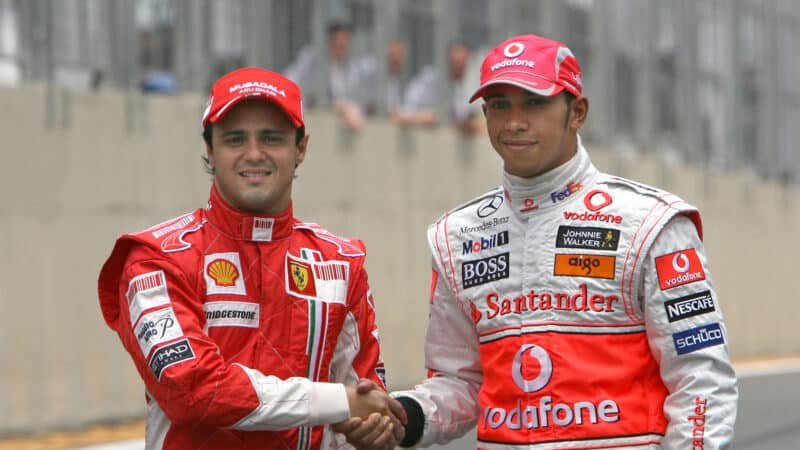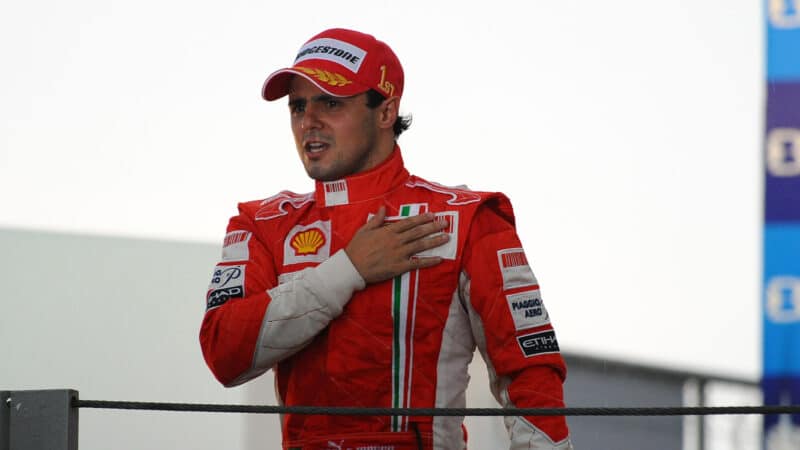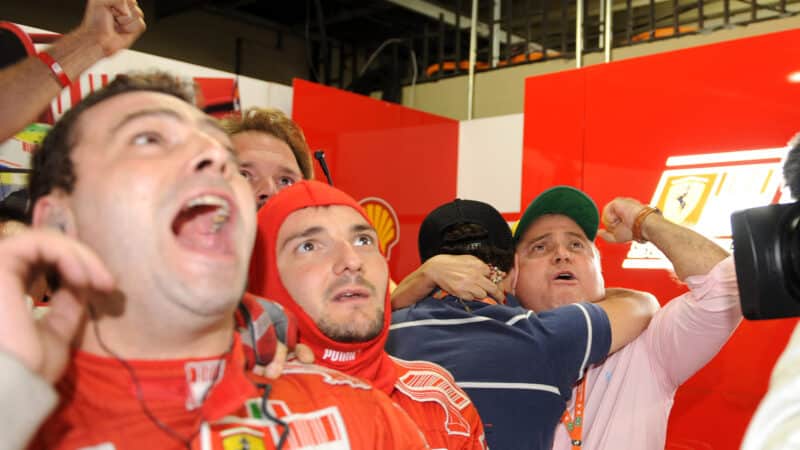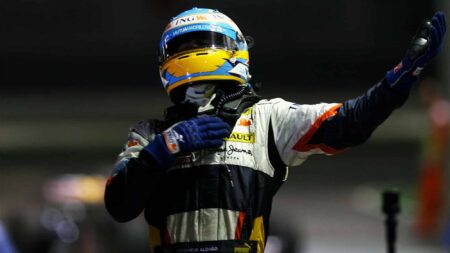It seems to me unlikely that Massa’s litigation will be successful. Law courts rarely overturn decisions made by the governing bodies of any sport, especially when a legal challenge refers to an event that took place so long ago: 15 years in Felipe’s case. Equally, there were other controversies that season, the stewardship of the Belgian Grand Prix for example, which in theory could be subject to retrospective litigation on a basis similar to that of Massa’s, and which therefore could, in the equally unlikely event that the FIA’s decision were to be altered, benefit Hamilton. It may be that, well aware that any change to the 2008 F1 world championship points allocation is fancifully unlikely, what Massa is actually angling for is financial recompense. I guess only he knows. And there is of course a big, ugly, lurking elephant in the room: what is surely likely is that, if Massa’s action were to be in any way successful, Hamilton might well ask a court to look at the 2021 Abu Dhabi Grand Prix. And why stop there? What about the 1973 Canadian Grand Prix? Might Emerson Fittipaldi or Howden Ganley seek to have Peter Revson’s victory challenged in court? Or what about the 1966 Indianapolis 500? Might Gordon Johncock or the estate of Jim Clark ask lawyers to take a look at that, too?
I will finish with a personal story about Felipe. In 2012, four years after the dramas of the 2008 season, McLaren elected to fly me to the Japanese Grand Prix on a London-Helsinki-Osaka flight operated by Finnair. That is not as odd as it sounds, since Suzuka is a cheap and easy train ride from Osaka whereas Tokyo, which is where most direct flights from London and other major European cities tend to land in Japan, is 240 miles (386km) from Suzuka. The seat next to me on the three-hour flight from London to Helsinki was unoccupied. On the next leg, Helsinki-Osaka, my next-door neighbour was Massa, still a Ferrari driver but win-free since Interlagos 2008 and podium-free for the past two years, having just flown to Helsinki from Nice. I had interviewed him a couple of times in my days as a journalist, first when he was an F1 rookie driving for Sauber in 2002, then in 2006 when his manager Nicolas Todt had secured him a drive at Ferrari, which was then being run by his father Jean Todt. Both times I had found him pleasantly communicative in a chummy, lively, boyish way.
The 31-year-old man I now found myself sitting next to on Finnair flight AY67 was different: more mature, naturally; more reflective; more measured; more of a conversationalist than a chatterbox. At that time I was toying with the idea of buying a nearly-new Ferrari 599 GTB Fiorano, and I asked him about it. He extolled its performance, ride, roadholding and handling characteristics in some detail, finishing with, “So, yes, buy one.” I never did. Perhaps I should have. Maybe one day I still will. A gorgeously styled front-engined Fezza powered by a 612bhp 6.0-litre V12 that pushes it from rest to 100mph (161km/h) in 7.4sec and on to a maximum speed of 205mph (330km/h) is never going to stop being tempting. “It’s one of the best Ferraris I’ve ever driven,” Felipe went on, “and, although mid-engined Ferraris usually appreciate more, the front-engined ones are nicer road cars really and your money would definitely be safe in a 599.”

Massa and Hamilton shook hands ahead of the 2008 decider; the Brazilian sought his rival out after the race to offer congratulations
Grand Prix Photo
As our meals were served, we chatted about Hamilton, who had just announced his decision to leave McLaren to join Mercedes. Flights from Helsinki to Osaka take 13 hours, so I did not feel I was intruding by continuing to converse, since there would be plenty of time for movies and sleep later, and anyway he seemed to be engaging with me agreeably enough. Our discussion moved to Interlagos 2008. I told him how impressed I had been by his having offered Lewis congratulations and a handshake in what must have been his darkest hour, and I described how moved Hamilton had been by the generosity of the gesture. I asked him how he had coped afterwards. “It was tough,” he said, after a pause. “But, in the end, I was able to cope because I knew I’d done everything I possibly could to win the world championship that day. I got pole position. I drove fastest lap. I won the race. I couldn’t have done any more. OK, behind me, Lewis got fifth at the very end, which won him the championship, but that was out of my control. If I hadn’t won – if, say, I’d finished second and Lewis had won the championship because I hadn’t won – well, I don’t think I’d have been able to cope nearly so well.”
Now, is he still coping? Perhaps. Perhaps not. Maybe he is now coping in a different way. If his litigation is successful, which as I say I expect it not to be, I hope it will bring him the closure that it appeared to this observer that he had already achieved via intelligent and level-headed reflection 11 years ago. But, even if he wins, the result will be a mess, a mishmash, a farrago, a gallimaufry, a dog’s dinner. If he loses, I hope that that outcome will not plunge him into a bitter melancholy.
I like him. I always have. In February 2002, wondering what this 20-year-old Brazilian rookie would be like, I asked newly retired Jean Alesi, who had watched him testing a Sauber at Mugello the previous autumn. “I think he’s a future world champion,” he replied. “He’s fast, clever and a bit mad.” Perhaps Alesi’s first sentence was almost right, and his second spot-on.




